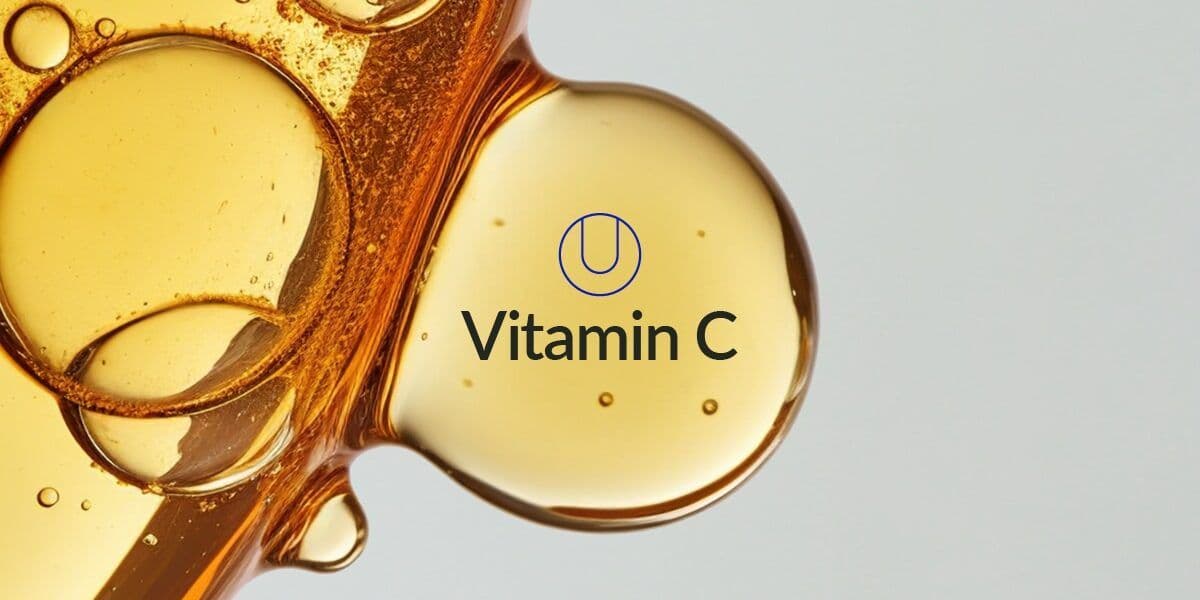The Science Behind Vitamin C: Why Is It A Key Ingredient?

We look into the science behind this particular vitamin to give you all the information you need to support your wellness through cough-cold season – and beyond!
Understanding vitamin C's role in immune support
Vitamin C, also known as L-ascorbic acid, is a water-soluble vitamin that has many roles when it comes to supporting our immune system.
Firstly, it acts as an antioxidant, which means it protects cells from damage caused by free radicals - the compounds that are created when our body converts food into energy or that we’re exposed to via environmental factors such as pollution, cigarette smoke or UV light from the sun. This ‘damage’ is sometimes referred to as oxidative stress.
Vitamin C also helps the body to create a specific protein – collagen – that helps wounds heal.
What’s more, vitamin C helps the body absorb iron from foods we eat, helping our immune system get everything it needs, in order to be able to fight off infections and disease.
This is particularly key for anyone diagnosed with anaemia or following a meat-free diet (vegetarians or vegans). Eating or supplementing your diet with vitamin C can help improve iron levels.
The UK’s National Health Service (NHS) succinctly describes vitamin C’s role in immune support as triple-pronged:
helping to protect cells and keeping them healthy
maintaining healthy skin, blood vessels, bones and cartilage
helping with wound healing.
Can Vitamin C cure a cold?
Despite what you may have read, heard or believe, there is no truth to this.
Vitamin C cannot cure a cold. What it can do, however, is reduce the severity of a cold and reduce recovery time.
Evidence suggests regular vitamin C can shorten a cold by 8% in adults and by 14% in children.
What are the best sources of vitamin C?
Chances are you’ll have several good sources of vitamin C in your fridge right now.
These might include:
citrus fruit, such as oranges and orange juice
peppers
strawberries
blackcurrants
broccoli
brussels sprouts.
In an ideal world we’d get all the nutrients we need from a healthy, balanced diet, filled with fresh fruit, vegetables and grains. However, as REVIV’s Head of Genetics & Life Science, Dr Michael Barnish explains, this is not easy to do purely from diet alone in the modern world.
‘We're living in a world that’s quite toxic, we’re surrounded by chemicals,' he explains, which is why we need nutritional support, and this is where oral supplementation or IVs and IMs come in.
'These days our food is not generally as nutritionally rich as it could be, so supplementation can be a helpful tool when improving your nutritional status, ‘ he says.
Can't I just get vitamin C from my food?
Soil depletion and modern lifestyles mean we're not getting the same nutrients from food as we once did.
As a result, the fruits, vegetables and grains grown today contain fewer vitamins and minerals than they did decades ago.
So more people are looking to supplementation.
Vitamin C via oral supplementation
Vitamin C is contained in many over-the-counter multi-vitamin supplements, or on its own as a vitamin C oral supplement. These are often soluble or chewable and best taken with or after food.
According to NHS guidelines, 'adults aged 19 to 64 need 40mg of vitamin C a day. ‘
In the US, guidelines are slightly higher, recommending 90mg for adult men and 75mg for adult women.
Certain groups of people will be advised to take a daily supplement. These include:
Smokers “ studies have found that smokers need 35 mg more vitamin C per day than nonsmokers.
Anyone with a very limited diet.
People being treated for chronic disease (affecting their diet or absorption ability).
Your doctor or specialist will be able to recommend the best way to supplement your diet.
If you do take vitamin C supplements, NHS guidance says ‘ do not take too much as this could be harmful. ‘
Vitamin C via IV drip therapy
Our IV drip therapies are carefully designed to hydrate and deliver a specific blend and dosage of vitamins, minerals and nutrients directly into your bloodstream, via a cannula.
‘ This method means we can get up to 100% absorption of the vitamins, minerals and antioxidants, ‘ says Dr Barnish.
Using IV drip therapy to supplement your diet also has other benefits, in that it is more convenient and stops you forgetting to take a daily supplement.
What's more, in a recent REVIV survey, 83% of customers asked said they found the wellness benefits of IV therapy ‘ better than taking oral supplementation ’ .
For a vitamin C-specific IV we offer the Megaboost, which is our signature and most popular infusion. Megaboost has been designed with wellness in mind and includes a blend of B vitamins, vitamin C and minerals in one nutrient-rich drip.
You can also find vitamin C included in our premium HELIIX IV drip therapy. Carefully designed by expert doctors and scientists, it also includes zinc, alpha-lipoic acid, glutathione and vitamin B12.
Vitamin C via IM vitamin shots
As an alternative to IV drip therapy, you can also receive vitamin C directly into the muscle with a quick and efficient IM vitamin shot. This is slightly more slow release but is still an effective way to administer a high quality shot of vitamin C.
Not sure which is best for you? Ask our clinical practitioners in clinic, or call REVIV on 0330 818 7157 to see which therapy is best suited to your own personal wellness goals.
Interested in vitamin therapy? Explore the benefits of vitamin B12 therapy in our blog.
Subscribe to our newsletter
Get the latest articles and updates straight to your inbox.
SIMILAR NEWS

Can Glutathione Help With Skin Pigmentation And Psoriasis?

Coffee. Is It Good Or Is It Bad? The Verdict
SEPTEMBER 29, 2020
It is an age-old question. Is coffee good or is it bad for you. Well the answer is absolutely locked within your genes. Genetic advances have made it now common place to explore the secrets within your genetic make-up. Revealing whether coffee is good or bad for you is one of the nuggets of information that can be discovered.

Does Drinking Coffee And Water Sober You Up Faster?
Fun fact Friday
AUGUST 05, 2016
Yes and No.
While drinking water, coffee and various other factors can make people feel more alert and act more sober, it does not affect the rate at which alcohol is broken down by the body.